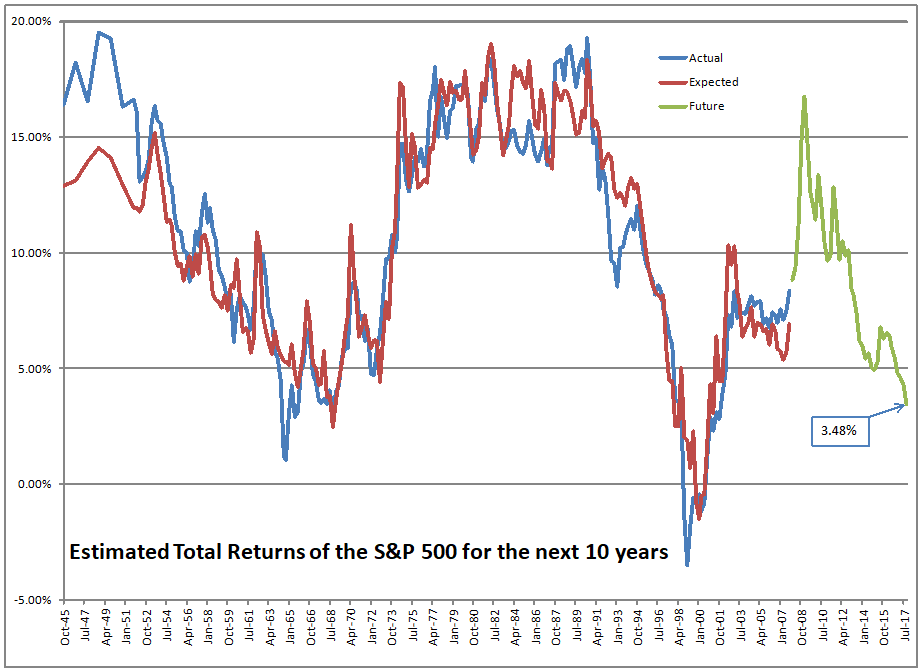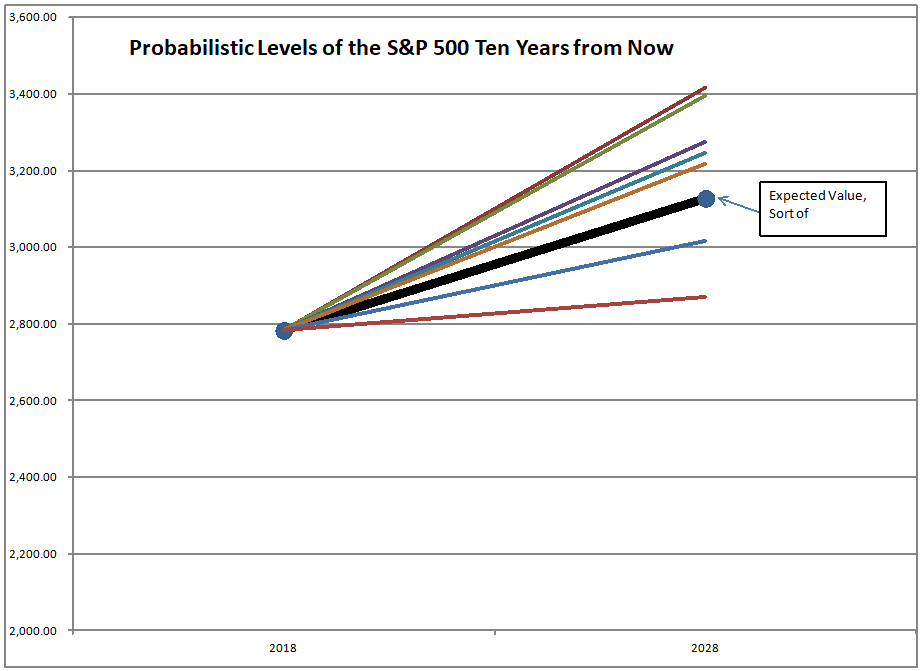
=================
Jeff Bezos has a saying, “Your margin is my opportunity.”? He has found ways to eat the businesses of others by providing the same goods and services at a lower cost.? Now, that makes Amazon more productive and others less productive.? The same is true of other internet-related businesses like Google, Netflix, etc.
And, there is a slight net benefit to the economy from the creative destruction.? Old capital gets recycled.? Malls that are no longer so useful serve lower-margin businesses for locals, become homes to mega-churches, other area-intensive human gatherings, or get destroyed, and the valuable land so near many people gets put to alternative uses that are better than the mall, but not as profitable as the mall prior to the internet.
Laborers get released to other work as well.? They may get paid less than they did previously, but the system as a whole is more productive, profits rise, even as wages don’t rise so much.? A decent part of that goes to the pensions of oldsters — after all, who owns most of the stock?? Indirectly, pension plans and accounts own most of it.? As I have sometimes joked, when there are layoffs because institutional investors representing pension plans? are forcing companies to merge, or become more efficient in other ways, it is that the parents are laying off their children, because there are cheaper helpers that do just as well, and the added profits will aid their deservedly lush retirement, with little inheritance for their children.
It is a joke, though seriously intended.? Why I am mentioning it now, is that a hidden assumption of my S&P 500 estimation model is that the return on assets in the economy as a whole is assumed to be constant.? Some will say, “That can’t be true.? Look at all of the new productive businesses that have been created! The return on assets must be increasing.”? For every bit of improvement in the new businesses, some of the old businesses are destroyed.? There is some net gain, but the amount of gain is not that large in aggregate, and these changes have been happening for a long time.? Technological progress creates and destroys.
As such, I don’t think we are in a “New Era.”? Or maybe we are always in a “New Era.”? Either way, the assumption of a constant return on assets over time doesn’t strike me as wrong, though it might seem that way for a decade or two, low or high.
As it is today, the S&P 500 is priced to deliver returns of 3.24%/year not adjusted for inflation over the next ten years.? At 12/31/2017, that figure was 3.48%, as in the graph above.
We are at the 95th percentile of valuations.? Can we go higher?? Yes.? Is it likely?? Yes, but it is not likely to stick.? Someday the S&P 500 will go below 2000.? I don’t know when, but it will.? There are enough imbalances in the world — too many liabilities relative to productivity, that crises will come.? Debt creates its own crises, because people rely on those payments in the short-run, unlike stocks.
There are many saying that “there is no alternative” to owning stocks in this environment — the TINA argument.? I think that they are wrong.? What if I told you that the best you can hope for from stocks over the next 10 years is 4.07%/year, not adjusted for inflation?? Does 1.24%/year over the 10-year Treasury note really give you compensation for the additional risk?? I think not, therefore bonds, low as they may be, are an alternative.

If you are happy holding onto stocks, knowing that the best scenario from past history would be slightly over 3400 on the S&P 500 in 2028, then why not buy a bond index fund like AGG or LQD that could virtually guarantee something near that outcome?
Is there risk of deflation?? Yes there is.? Indebted economies are very susceptible to deflation risk, because wealthy people with political influence will always prefer an economy that muddles, to higher taxes on them, inflation, or worst of all an internal default.
That is why I am saying don’t assume that the market will go a lot higher.? Indeed, we could hit levels over 4000 on the S&P if we go as nuts as we did in 1999-2000.? But the supposedly impotent Fed of that era raised short-term rates enough to crater the market.? They are in the process of doing that now.? If they follow their “dot plot” to mid-2019 the yield curve will invert.? Something will blow up, the market will retreat, and the next loosening cycle will start, complete with more QE.
Thus I am here to tell you, there is an alternative to stocks.? At present, a broad market index portfolio of bonds will likely outperform the stock market over the next ten years, and with lower risk.? Are you ready to make the switch, or at least, raise your percentage of safe assets?

You make a compelling case for dialing back risk by switching out of equities to bonds. Since stocks have advanced so much the past few years, it makes sense that their expected returns will be lower. But as the Fed raises rates, I don’t want to be long bonds since their prices are going to go down. I’m actually long TMV, a 3x inverse long-term treasury ETF. What do you think the best course of action is in this “interim” period, before there’s a huge pullback in stocks and while the Fed continues to slowly raise rates?
How does this bonds over stocks scenario play out if inflation is higher than the recent past? I’m not asking about CPI, I am asking about a person’s actual cost of living — which at least along the two US coasts has been MUCH higher than CPI reports. The Fed’s policy of financial repression (keeping interest rates well below CPI, never mind cost of living) has made bonds a disaster for the past 10 years… bond investors had an accounting gain, on which they paid taxes, but after subtracting for cost of living they had significant losses to both principal and income. Why would we expect the next 10 years, with Uncle Sam even deeper in debt, to be better? Playing devils advocate, equities did benefit from PE multiple expansion (repeatable???) and buyback shenanigans (repeatable???) — but some equities allow for pricing power to adapt to inflation, whereas bonds do not… PS – In full disclosure, I agree with your other post that emerging markets look very attractive over the next few years.